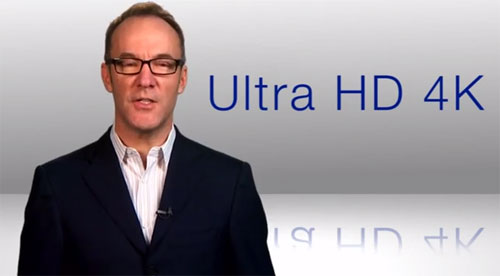Talk of 4K television being on the verge of becoming the “next big thing” is a bit premature according to one research firm, which says that the technology is set to remain a “niche market” for several years yet.

The Diffusion Group (TDG) says that those professing such “rosy forecasts” are being “overly optimistic”, arguing that we’re still about five years away from 4K becoming a common sight in our living rooms.
There have been several claims that ultra high-definition (UHD) TV will become ‘industry standard’ the moment audiences come to realise how awesome the technology really is. But TDG begs to differ, saying that the realities of 4K’s high price tag, a dearth of genuine 4K content, and low consumer awareness are likely to hold back sales for some time to come.
In spite of its caution, TDG does predict that 4K will eventually force its way into our living rooms. When “widespread viewing” of 4K content arrives in 2019, adoption should grow rapidly after that. It says that consumer purchases of hardware capable of streaming 4K media will be the driving force in its growth.
Leading the way will be companies like Amazon, Apple and Roku, which will offer a variety of 4K Ultra HD content in the coming years that sparks interest from consumers. But while TDG says streaming will be the main medium of delivery, it estimates that physical media will account for about a fifth of 4K viewing by 2017 – a small hint perhaps, that we might not have to wait too long before we see the first batch of 4K Blu-rays hitting the shelves.
For their part, TV manufacturers seem determined to prove cautious analysts like TDG wrong, with the trend moving towards lower and lower prices – most recently, Chinese firm Seiki began selling a 50-inch 4K model priced at just £599, though it remains to be seen how this compares to higher-priced sets from more established brands like Samsung, Sony and LG Electronics.
But cheaper TV sets does nothing to solve the bigger problem of there being virtually nothing to watch on them. Netflix was the first major company to begin offering 4K content, but its current catalogue is best described as “minimal”. As for when satellite broadcasters like Sky TV might get in on the act, that’s still anyone’s guess.
Source: The Diffusion Group